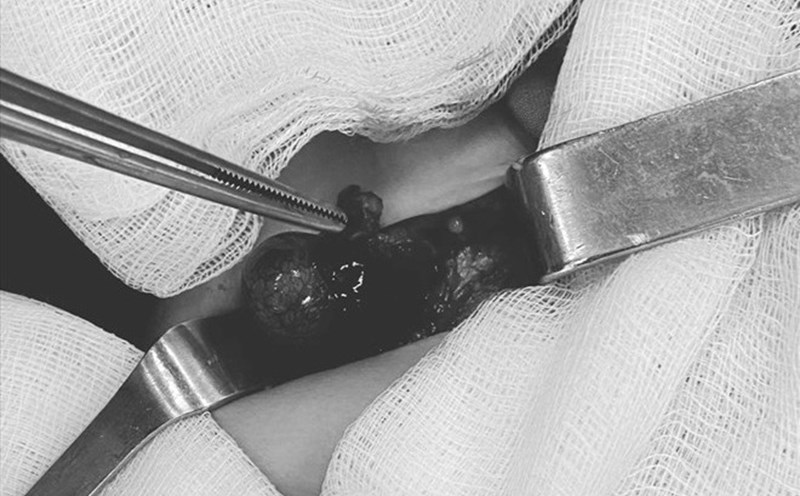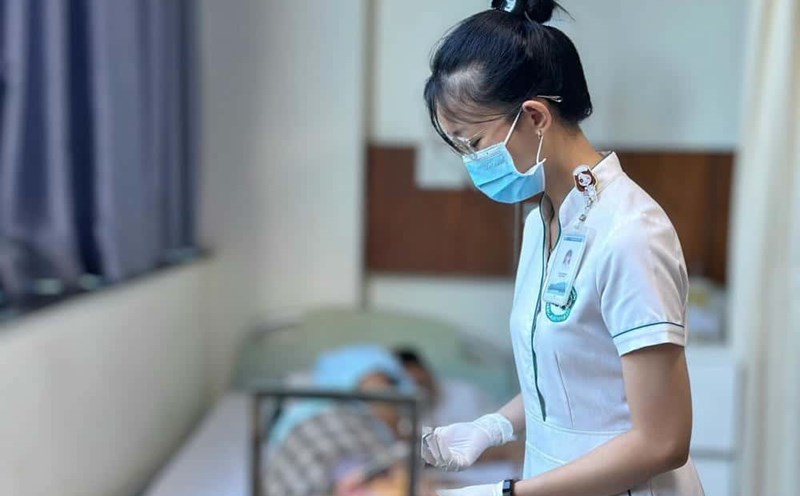According to the patient's family, the incident started after an early morning swim when he was bitten by an animal in the right thigh. The wound was very small, not swollen, or painless, so he subjectively did not pay attention.
Just 15 hours later, the left thigh was swollen, painful, and red. Immediately, the patient was urgently transferred to the Poison Control Center, Bach Mai Hospital.
At the time of hospitalization, the patient's condition was critical: thighs were covered with dengue water, necrotizing tissues spread rapidly, septic shock, respiratory failure, kidney failure, low blood pressure, IL6 index exceeded threshold... The patient had to take a ventilator, filter blood continuously and use high doses of vasopressors.

Test results show that the culprit is the bacteria Vibrio vulnificus - a type of dangerous bacteria that lives in seawater, river mouths, and brackish water, which can cause soft tissue necrosis infections and quickly die. In the US, there are 150200 infections per year, with a mortality rate of about 20%.
To save the patient's life, Bach Mai Hospital held a hospital-wide consultation, including specialties: Orthopedics, Sightseeing, Resuscitation, Anesthesia, Tropical Medicine, Biology, Endocrinology... After an urgent and tense discussion, the doctors agreed on an immediate surgery plan to remove necrotizing tissue.
The patient underwent emergency surgery: wide canal, drainage, exfoliation, muscle relaxation, combined with treatment with 4 strong antibiotics. Thanks to the timely decision, the patient overcame the critical stage and gradually stabilized his vital function. After 6 days, the patient breathed on his own, the wound gradually dried, the infection was controlled and transferred to the Department of Plastic Surgery for further care.
Dr. Nguyen Trung Nguyen - Director of the Poison Control Center, Bach Mai Hospital said that Vibrio vulnificus is a bacteria that lives in warm ocean waters, can be introduced through wounds or eat raw seafood. Bacteria that cause necrotizing infections are extremely fast, especially dangerous for people with liver disease, immunodeficiency, open wounds...
The doctor recommends: not to bathe in the sea when there is an open wound, not to eat raw seafood, and carefully wash the wound to remove bacteria if the hand is broken or scratched by marine life. When you see signs such as swelling, heat, redness, pain, dark skin or darkness, you should go to a medical facility immediately.
"We have witnessed many deaths despite efforts to treat them. Some patients were just stolen by crab but later died from necrotizing infections" - Dr. Nguyen Trung Nguyen shared.











